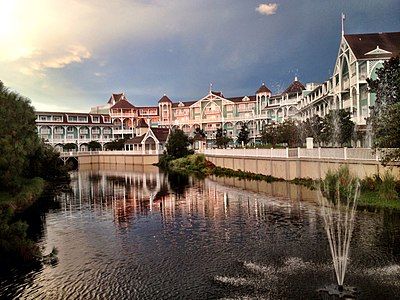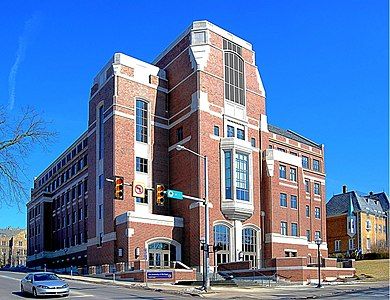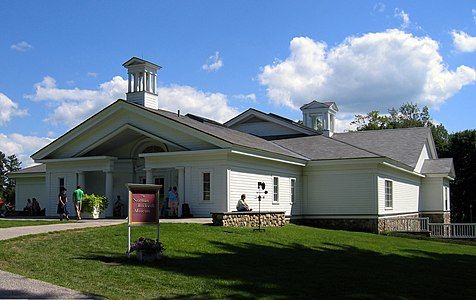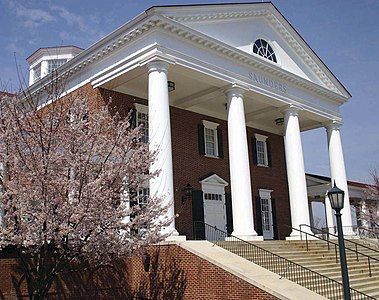Robert A. M. Stern
Robert A. M. Stern | |
|---|---|
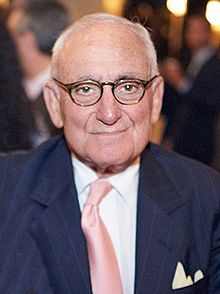 | |
| Born | May 23, 1939 New York City, U.S. |
| Alma mater | Columbia University (BA) Yale University (MA) |
| Occupation | Architect |
| Spouse | Lynn Gimbel Solinger (divorced) |
| Children | Nicholas S. G. Stern |
| Awards | Driehaus Architecture Prize |
| Buildings | Comcast Tower, 15 Central Park West, 220 Central Park South, 520 Park Avenue, 30 Park Place, Pauli Murray College and Benjamin Franklin College |
| Signature | |
 | |
Robert Arthur Morton Stern (born May 23, 1939) is a New York City–based architect, educator, and author. He is the founding partner of the architecture firm, Robert A. M. Stern Architects, also known as RAMSA. From 1998 to 2016, he was the Dean of the Yale School of Architecture.
His firm's major works include the classically styled New York apartment building, 15 Central Park West; two residential colleges at Yale University; Philadelphia's Museum of the American Revolution; and the modernist Comcast Center skyscraper in Philadelphia.[1] In 2011, Stern was honored with the Driehaus Architecture Prize for his achievements in contemporary classical architecture. Schwarzman College was designed by Stern; the 200,000 square foot campus houses one of the most advanced higher-education facilities in the world[citation needed] and is one of the first LEED Gold-certified academic buildings in China.
Early life and education
[edit]Born in the Brooklyn borough of New York City, in 1939 to a Jewish family,[2] Stern spent his earliest years with his parents in the nearby Manhattan borough.[3] After 1940, they moved back to Brooklyn, where Stern grew up. Stern received a bachelor's degree from Columbia University in 1960 and a master's degree in architecture from Yale University in 1965. Stern has cited the historian Vincent Scully and the architect Philip Johnson as early mentors and influences.[4]
Career
[edit]After graduating from Yale, Stern worked as a curator for the Architectural League of New York, a job he gained through his connection to Philip Johnson. While at the League, he organized the second 40 Under 40 show, which featured his own work alongside work of then-little-known architects Charles Moore, Robert Venturi and Romaldo Giurgola, all of whom were featured in the influential issue of Perspecta that Stern edited a year before at Yale.[5] Upon leaving the Architectural League in 1966, Stern worked briefly as a designer in the office of the architect Richard Meier, then worked for two and a half years at New York City's Housing and Development Administration, after which he established Stern & Hagmann with John S. Hagmann, a fellow student from his days at Yale.[6] In 1977 he founded its successor firm, Robert A.M. Stern Architects, now known as RAMSA.[6] Stern remains a partner at RAMSA, and has indicated he has no plans to retire.
Educator
[edit]Stern was the dean of the Yale School of Architecture from 1998 to 2016, and has continued to teach there since the end of his tenure.[7] Previously, he taught at Columbia University, in the Columbia Graduate School of Architecture, Planning and Preservation, and from 1984 to 1988 was the director of Columbia's Temple Hoyne Buell Center for the Study of American Architecture.[7]
Other activities
[edit]A prolific writer, Stern has authored, co-authored, and edited numerous books about architecture, including five volumes about New York City's architectural history, each focusing on a different period. In 1986, he hosted "Pride of Place: Building the American Dream", an eight-part documentary series that aired on PBS. The series featured Peter Eisenman, Leon Krier, Philip Johnson, Frank Gehry and other notable architects. "Pride of Place" was well received by the public.[8]
Work
[edit]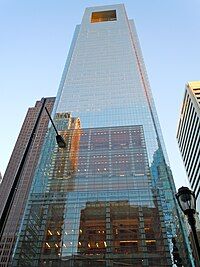
Many of Stern's early works were private houses in the New York metropolitan area, including in the Hamptons and in Westchester County.[6] Early commercial commissions included projects for Walt Disney World such as Disney's Yacht Club Resort, Disney's Beach Club Resort and the masterplan for Celebration, Florida, and from 1992−2003, Stern served on the board of the Walt Disney Company.[9][10]
Stern is now better known for his large-scale condominium and apartment building projects in New York City, which include 20 East End Avenue, The Chatham, The Brompton and 15 Central Park West. The latter was, at the time of its completion, one of the most financially successful apartment buildings ever constructed, with sales totaling $2 billion.[11]
Stern has designed some of the tallest structures in the United States, including the glass-clad Comcast Center, the second tallest building in both Philadelphia and Pennsylvania.[12] The Driehaus Prize committee (commenting on a preliminary, stone-clad, pyramidal-topped scheme) characterized the design as "[carrying] forward the proportions of the classical obelisk".[13] The scheme, along with Stern's 15 Central Park West, and his master plan for Celebration, were cited as contributing factors in his having won the award. More recently, Stern has designed three skyscrapers in New York City, 220 Central Park South, 520 Park Avenue and 30 Park Place, which will be among the tallest buildings in the city and the United States when complete.[14][15][16] In 2017 RAMSA completed a major addition to the campus of Yale University, with two new residential colleges, Pauli Murray College and Benjamin Franklin College, both designed in a Collegiate Gothic style.[17]
Style
[edit]In the 1970s, and early 1980s, Stern developed a reputation as a postmodern architect for integrating classical elements into his designs for contemporary buildings,[18] but in the mid-1980s, his work became more traditional, more in keeping with the then emerging New Classical architectural movement.[19] Stern, however, has rejected such characterizations, arguing that his projects draw on vernacular context and local traditions.[20] In recent years, the work of Stern's office has ranged from traditional to modernist, depending on the building type and project location, and is best characterized as eclectic and contextual.
Notable projects
[edit]-
15 Central Park West in New York City, 2008
-
520 Park Avenue in New York City, 2018
-
Disney's Beach Club Resort at the Walt Disney World, Florida, US, 1990
-
Federal Reserve Bank of Atlanta headquarters in Atlanta, Georgia, US, 2001
Personal life
[edit]Stern owns an apartment in The Chatham, a building he designed in New York City.[21] In 1966, he married photographer Lynn Gimbel Solinger, the daughter of David Solinger and the granddaughter of Bernard Gimbel, a marriage that ended by divorce in 1977.[22][23] They had one son, Nicholas S. G. Stern, who manages the boutique construction and planning firm Stern Projects.[24][25]
Awards
[edit]- 1993: Golden Plate Award of the American Academy of Achievement[26]
- 2006: Edmund N. Bacon Prize[27]
- 2007: Athena Medal from the Congress for the New Urbanism[28]
- 2008: Vincent Scully Prize[29][30]
- 2010: Historic Districts Council's Landmarks Lion Award[31]
- 2011: Driehaus Architecture Prize[13]
- 2019: Louis Auchincloss Prize[32]
Bibliography
[edit]A selection of books written and co-written by Stern:
- New Directions in American Architecture (1969)
- George Howe : Toward a Modern American Architecture (1975)
- New York 1900 : Metropolitan Architecture and Urbanism 1890–1915 (1983)
- New York 1930 : Architecture and Urbanism Between the Two World Wars (1987)
- Modern Classicism (1988)
- Pride of Place : Building the American Dream (1986)
- New York 1960 : Architecture and Urbanism Between the Second World War and the Bicentennial (1997)
- New York 1880 : Architecture and Urbanism in the Gilded Age (1999)
- New York 2000 : Architecture and Urbanism Between the Bicentennial and the Millennium (2006)
- The Philip Johnson Tapes : Interviews by Robert A.M. Stern (2008)
- Paradise Planned : The Garden Suburb and the Modern City (2013)
- Pedagogy and Place: 100 Years of Architecture Education at Yale (2016)
- The New Residential Colleges at Yale: A Conversation Across Time (2018)
References
[edit]- ^ "Projects". May 12, 2015.
- ^ Michael Henry Adams (March 21, 2021). "MoMA wants to cancel Philip Johnson – many who knew him do not". The Guardian.
- ^ 1940 U.S. Census, 135 Ridge Street, New York, NY.
- ^ "Who are you Robert Stern?". Big Think. February 21, 2008. Retrieved April 28, 2014.
- ^ Perspecta: The Yale Architectural Journal, Vol. 9/10 (The MIT Press, 1965)
- ^ a b c Stern, Robert A. M. (1981). Peter Arnell (ed.). Robert A. M. Stern 1965-1980. Ted Bickford. New York, NY: Rizzoli. ISBN 9780847804009.
- ^ a b "Robert A.M. Stern". Yale University. Retrieved February 1, 2016.
- ^ Stern, Robert A. M. (November 1, 2005). "Robert A. M. Stern". Perspecta. 37. The MIT Press: 50–57.
- ^ Zukowsky, John. "Robert A. M. Stern (American architect)". Encyclopædia Britannica. Retrieved April 3, 2014.
- ^ "Robert A.M. Stern, FAIA". RAMSA. Archived from the original on March 24, 2015. Retrieved May 20, 2015.
- ^ Goldberger, Paul (September 1, 2008). "King of Central Park West". Vanity Fair. Retrieved May 20, 2015.
- ^ "Comcast Center". RAMSA. Archived from the original on April 2, 2015. Retrieved May 20, 2015.
- ^ a b "Robert A.M. Stern". Driehaus Architecture Prize (Notre Dame University). 2011. Archived from the original on March 21, 2014. Retrieved May 20, 2015.
- ^ Wilson, Reid (December 28, 2015). "54-Story, 33-Unit Residential Tower Rises At 520 Park Avenue, Upper East Side". YIMBY. Retrieved February 1, 2016.
- ^ Fedak, Nikolai (January 28, 2016). "Final Renderings for 220 Central Park South Show Slight Design Changes". YIMBY. Retrieved February 1, 2016.
- ^ Fedak, Nikolai (October 7, 2013). "30 Park Place Set to Resume Construction". YIMBY. Retrieved February 1, 2016.
- ^ "Construction Story: Building the New Colleges | The New Residential Colleges". newresidentialcolleges.yale.edu. Retrieved March 21, 2018.
- ^ Davidson, Justin (November 3, 2013). "Unfashionably Fashionable". New York. Retrieved April 28, 2014.
- ^ Pogrebin, Robin (December 16, 2007). "Building Respect at Yale". New York Times. Retrieved April 28, 2014.
- ^ Marino, Vivian (June 29, 2012). "The 30-Minute Interview: Robert A.M. Stern". The New York Times. Retrieved April 28, 2014.
- ^ Marino, Vivian (June 20, 2012). "The 30-Minute Interview Robert A.M. Stern". The New York Times. Retrieved May 20, 2015.
- ^ Everett-Haynes, La Monica (April 6, 2012). "Photography Center Acquires the Lynn Stern Archive". University of Arizona News.
- ^ "Weddings/Celebrations; Courtney Phillips, Nicholas Stern". New York Times. September 14, 2003.
- ^ Marino, Vivian (November 5, 2013). "Nicholas S. G. Stern". The New York Times. Retrieved February 1, 2016.
- ^ Alden, William (August 25, 2010). "Postmodern Son: Nicholas S. G. Stern Steps Out on His Own". Observer. Retrieved May 20, 2015.
- ^ "Golden Plate Awardees of the American Academy of Achievement". www.achievement.org. American Academy of Achievement.
- ^ "2006 Robert A.M. Stern". Philadelphia Center for Architecture. Retrieved February 1, 2016.
- ^ amckeag (June 11, 2015). "Athena Medals". CNU. Retrieved June 25, 2022.
- ^ "Robert A.M. Stern". National Building Museum. November 12, 2008. Archived from the original on December 20, 2015. Retrieved February 1, 2016.
- ^ Rybczynski, Witold (February 4, 2009). "That Dogma Won't Hunt". Slate. Retrieved February 1, 2016.
- ^ "Landmarks Lion Award 2015-Pride of Lions". Historic Districts Council. Retrieved December 31, 2015.
- ^ "2019 Louis Auchincloss Prize Presentation & Reception". Museum of the City of New York.
External links
[edit]- 1939 births
- Living people
- American neoclassical architects
- New Classical architects
- Architects from New York City
- Fellows of the American Institute of Architects
- Driehaus Architecture Prize winners
- Columbia College (New York) alumni
- Columbia University faculty
- Jewish American artists
- Jewish architects
- Yale School of Architecture alumni
- Yale School of Architecture faculty
- Artists from Brooklyn
- 20th-century American architects
- 21st-century American architects
- Gimbel family
- Robert A. M. Stern buildings
- Members of the American Academy of Arts and Letters




